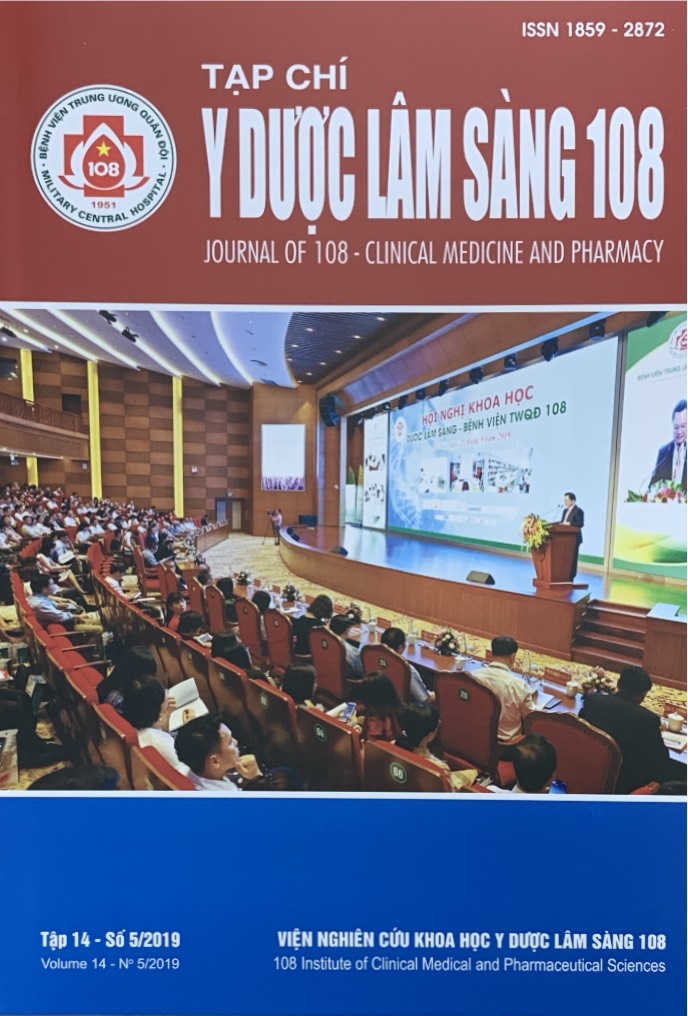Anxiety, depression in patients with acne during oral isotretinoin treatment
Main Article Content
Keywords
Abstract
Objective: To determine the proportion of anxiety, depression and the association with the duration of taking oral isotretinoin in patients with acne at Hospital of Dermato-Venereology, Ho Chi Minh city. Subject and method: Prospective study, sixty-seven patients taking oral isotretinoin were evaluated by using the HAD scale from October 2018 to July 2019. Result: The study showed that 50.75% had anxiety, 13.43% had depression, 1.43% had a combination of anxiety and depression symptoms. No association found between the development of anxiety, depression for patients with acne and the duration of oral isotretinoin treatment. Conclusion: The percentage of anxiety, depression in acne patients taking oral isotretinoin is very high. Therefore, we need to pay attention to this issue during treatment and management of acne patients.
Article Details
References
2. Layton A (2003) The use of isotretinoin in acne. Dermatoendocrinol 1(3): 162-169.
3. Alena BM, Olgia O, Thomas Ruzicka et al (2013) Does Istretinoin therapy of acne cure or cause depression?. International Journal of Dermatology 52: 1040-1052.
4. Wolverton SE and Harper JC (2013) Important controversies asscociated with isotretinoin therapy for acne. Am J clin Dermatol 14: 71-76.
5. Bhambri SDRJ, Bhambri A (2009) Pathogenesis of acne vulgaris: Recent advances. J Drugs Dermatol 615-618.
6. Brizida Refatllari LK, Albana Lufi and Ferdinand Canaj (2015) Emotional disturbances and socio-demographic characteristics in patients with Acne vulgaris. British Journal of Medicine & Medical Research 6(2): 226-232.
7. Kellett SC, Gawkrodgen DJ (1999) The psychological and emotional impact of acne and the effect of treatment with isotretinoin. Br J Dermatol 140: 273-282.
8. Zaenglein AL, Thiboutot DM (2003) Acne vulgaris. Dermatology 1: 531-544.
9. Golchai J, khani SH, Heidarzadeh A et al (2010) Comparison of anxiety and depression in patients with acne vulgaris and healthy individuals. Indian Journal of Dermatology 55(4): 352-354.
10. Jordan Cohen SA, Scott P (2007) No association found between patients receiving isotretinoin for acne and the development of depression in a canadian prospective cohort. Canadian Society for Clinical Pharmacology 14(2): 227-233.
11. Kontaxasis VPSD, Ferentinos P et al (2009) Isotretinoin and psychopathology: A review. Ann Gen Psychiatry 8: 2.
12. Yu-Chen Huang M, and Ying-Chih Cheng (2017) Isotretinoin treatment for acne and risk of depression: A systematic review and meta-analysis. J Am Acad Dermatol 76(6): 1068- 1076.
 ISSN: 1859 - 2872
ISSN: 1859 - 2872
